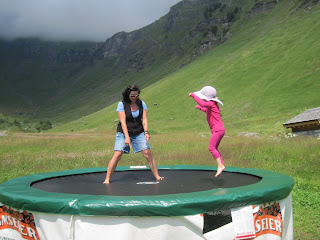I am reading two phenomenal books right now. One by Edward Abbey and One by Ernest Kurtz and Katherine Ketcham. One is prose about life in Moab, Utah in the late 1950s while Mr. Abbey worked as a park ranger in Arches National Park. The other is a collection of stories reinforcing the spiritual life, "stories you tell that may save someone's life, stories for anyone interested in an age-old tradition of spiritual literature that asks the hard questions of the human condition." These books feel linked to me, and I'm enjoying reading them simultaneously.
This is a pretty hefty quoted chunk from the latter book, The Spirituality of Imperfection. I've read these last few paragraphs five or six times, and each time, they say something different. I need to share them.
Fundamental to human be-ing is a root sense of connectedness--and specifically of that connectedness as somehow lost, missing, or wounded. The resultant yearning to be in some way united with reality beyond or larger than one's self underlies all art, religion, and love. When that connection is not present, we experience alienation and separation, a sense that "something is wrong" or, as the philosopher Alfred North Whitehead put it in locating the origins of spirituality, "Something is awry." We reach out to touch, we ache for contact, but something is missing. In the absence of that connection, we experience the sensation of being fractured, torn apart, pulled in a dozen different directions.
Putting the fractured pieces back together again--setting the bone back in its socket, bringing some wholeness to the sense of "torn-to-pieces-hood"--requires acknowledgment and acceptance of the essential connection between vision and feeling, between head and heart. Yet from the beginning of humankind's thoughtful presence on earth, human beings have been breaking themselves up into two--body-mind, thoughts-emotions, head-heart. Having made that division, philosophers for thousands of years and physicians and lawyers in more recent times hold lengthy debates about which bodily organ--the brain or the heart-- is more critical to being human.
Weaving in and out of this debate are the gentle voices of an august company of spiritual thinkers who resist these efforts to make the human being a one-sided conversation, a monologue, with either the head or the heart running the show. Our two-sidedness, our being both/and rather than either-or, means that we may be distinguishable, but we are not divisible. To be "mixed" is not to be divided; a stew is not a salad bar. The head and the heart are not only connected, but if we are to live a spiritual life, that essential connection must be nurtured and protected. How can we discover wholeness if we persist in dividing ourselves up into conflicting parts?
The American Spiritual genius Jonathan Edwards is but one of many who steadfastly opposed all efforts "to divide human nature into separate compartments of mind, will and emotion." Edwards loved to speak of "the sense of the heart": In rooting "the mind, will and emotion" in the heart, he was insisting that there is a center of human personality, so that "what we think is inevitably the product of the set of our wills, which in turn results from the basic direction of our hearts' desires."
There's obviously more. I mean, this is just four paragraphs in a book of stories and thoughts on spirituality. The part that is profound to me is the last: what we think is inevitably the product of the set of our wills, which in turn results from the basic direction of our hearts' desires.
While here in Switzerland I've been meditating and contemplating the 11th Step, "Sought through prayer and meditation to improve our conscious contact with God, as we understood Him, praying only for knowledge of His will for us and the power to carry that out." Reading this quote about what I think is inevitably a result of my own will, which is in turn the result of my heart's desires calmed me. I don't know what God's will is for me. I only know to do the best I can today, pray my focus be turned toward God, and leave the outcome, the results to God. I do know I have desires and wants. It can be a blurry place--to want a life, things, relationships, and relinquish these wants--to truly release them to what my Higher Power would want for me instead.
Are they linked? Is God's will for me the same as my own? I have no idea. I know I'm created by God, and God has given me this heart, full of desires. My will gets in the way when I'm not willing to change a behavior, be honest, be kind, tolerant and loving. When I'm not willing, I feel I am most drenched in my will. Stubborn insistence my wants and desires be met is sign for me I'm not open to what God has in store.
So, I wait. I sit and wait. I read Desert Love Prose in the form of Desert Solitaire while the weather here in Murren, Switzerland is cold, raining and cloudy. I dream of the heat the sun will grant me when I get home to sweet Arizona. I look forward with anticipation to what God has in store.
I am uncertain and unsure.
I am also willing, in this moment, to turn my entire life over to the care of God. To trust the outcome of my life to God.
And that feels safe, lovely, sweet.
No matter what book I'm reading.














































































